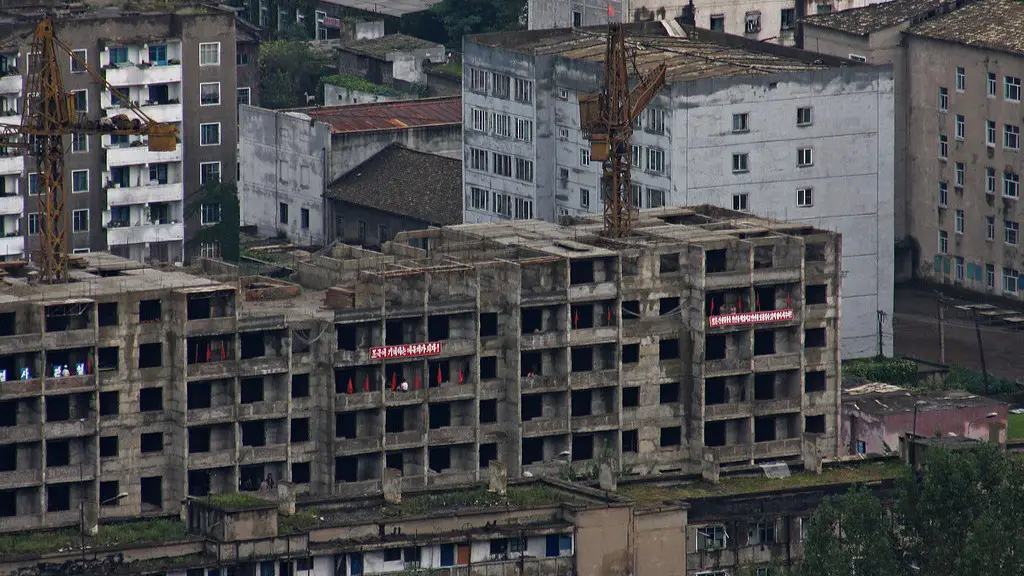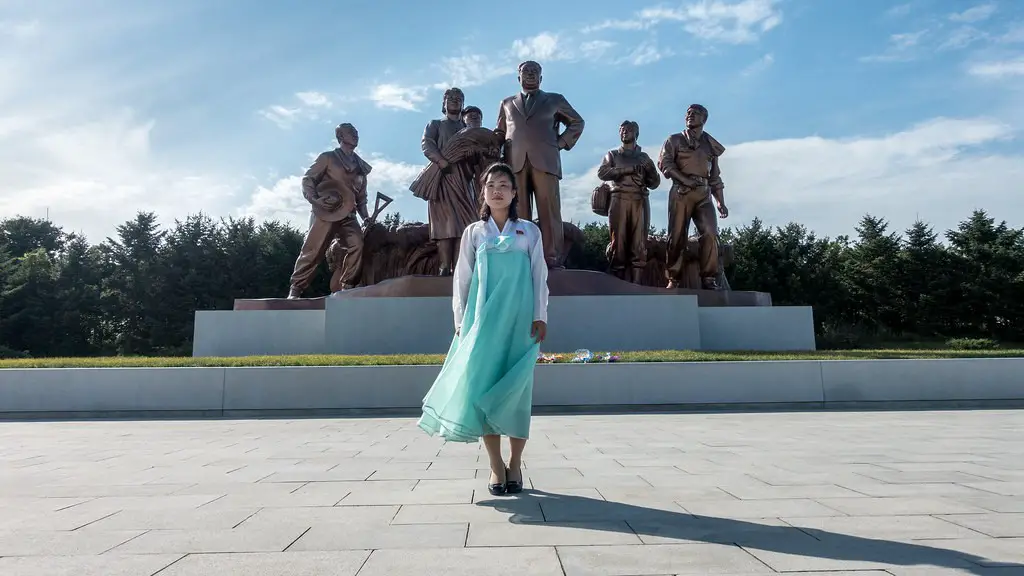Introduction
With tensions between the United States and North Korea appearing at all-time highs, many individuals have started to debate the possibility of a large-scale military confrontation between the two countries. Although it is impossible to predict what form or shape such a conflict would take, the United States and its allies must be prepared for a wide range of scenarios should the situation escalate. In this article, we explore the potential military, economic and diplomatic ramifications of a potential US-North Korea war and how it might unfold.
Geopolitical and Military Context
Although North Korea has not officially declared war on the United States, it is widely believed that Kim Jong-un and the North Korean government have been preparing for a military confrontation. The North Korean military has been actively expanding and modernizing its arsenal since the end of the Korean War in 1953, with the country now possessing nuclear, chemical and conventional weapons. What remains unclear, however, is Kim Jong-un’s willingness to actually use them.
From the American perspective, the United States has maintained a significant presence in the Korean Peninsula since the Cold War. The US currently houses 28,500 troops in South Korea, many of whom are in charge of training the South Korean military and providing military support in case of armed conflict. In addition, the US also has its 11th Air Force based in Okinawa and 6th Fleet positioned near the Korean Peninsula, both of which would play a pivotal role in a US-North Korean War.
Potential US Strategies
Given the North Korean military’s size and capabilities, the US would likely engage in a preemptive approach, targeting North Korean military sites and nuclear capabilities before they could be used against the US or its allies. The US would also likely move to impose massive economic sanctions on the country and utilize diplomatic pressure to weaken North Korea’s resolve before actually engaging the country militarily. The US could also mobilize its allies in the region, such as Japan and South Korea, and attempt to engage North Korea in international negotiations.
Potential North Korean Strategies
From the North Korean perspective, the country is well aware of the US military’s overwhelming capabilities and would likely seek to use its own weapons against American targets. North Korea could attempt to use its missile capabilities to launch an attack against US military sites or its satellites in an effort to disrupt American communication networks. In addition, North Korea could also pursue a strategy of guerilla warfare and terrorism, targeting US assets including commercial airliners or ships in an effort to further disrupt the US military.
Implications for the Region
Regardless of the strategies employed by either side, the potential implications of a US-North Korean War are significant. For starters, a war could wreak havoc on the Korean Peninsula and its civilian population, with millions of people potentially displaced due to conflict and millions more potentially killed by the fighting. In addition, a US-North Korean War could lead to the destabilization of the region, with China and Russia potentially providing support to North Korea in order to counter US interests.
Implications for the US
From an American perspective, a US-North Korean War could have far-reaching implications, both militarily and economically. The US has invested billions of dollars in the Korean Peninsula and would likely bear the cost of economic reconstruction once the conflict had ended. In addition, the war could also lead to a significant strain on US resources, with the US potentially losing a significant number of personnel in the conflict.
Short and Long-term Outcomes
In terms of short-term outcomes, the US would likely win a war against North Korea given its overwhelming military capacity. However, the US would not be able to completely eradicate all of North Korea’s military capabilities or nuclear arsenal and would be forced to accept a degree of international condemnation for its actions. In the long-term, a US-North Korea War could lead to a more unified Korean Peninsula and could bolster US interests in the region. However, the conflict could also lead to further instability in the region, potentially leading to a rise in global terrorism and other unpredictable regional outcomes.
Conclusion of the War
Ultimately, it is difficult to predict how a US-North Korea War might unfold and what its impacts would be. Such a conflict could potentially lead to a unified Korean Peninsula, but it could also lead to further instability in the region and greater geopolitical tensions. It is clear that the US must be prepared for a wide range of contingencies, including military, diplomatic and economic scenarios, in order to ensure that it is in the best possible position to achieve its objectives and protect its interests in the region.
Potential Military Aftermath
The potential aftermath of a US-North Korea War would likely depend on how the war was concluded and how successful the US and its allies were in achieving their objectives. For starters, the US and its allies could face potential military retaliation from North Korea or its allies, as well as legal challenges at the international level for conducting an illegal war. In addition, the US and its allies would be responsible for rebuilding and rehabilitating areas impacted by the conflict, a task that could cost the US billions of dollars and many years to accomplish.
Economic Implications
The economic implications of a US-North Korea War would depend on the duration and intensity of the conflict, as well as the economic recovery plans implemented after the conclusion of the war. For starters, the US and its allies would likely bear the brunt of the economic burden, as the US would be faced with the task of rebuilding and modernizing North Korea’s infrastructure. In addition, the US and its allies would also be responsible for providing humanitarian relief and assistance to North Korea’s civilian population in order to ensure the country’s economic recovery.
International Reactions
The international community’s response to a US-North Korea War would likely depend on how the US conducted the war and how successful it was in achieving its objectives. The US and its allies could face international criticism and potentially even sanctions if it was seen as acting outside of international law or engaging in human rights violations. In addition, the US and its allies would likely face criticism from countries that have close economic ties with North Korea, such as China and Russia.


